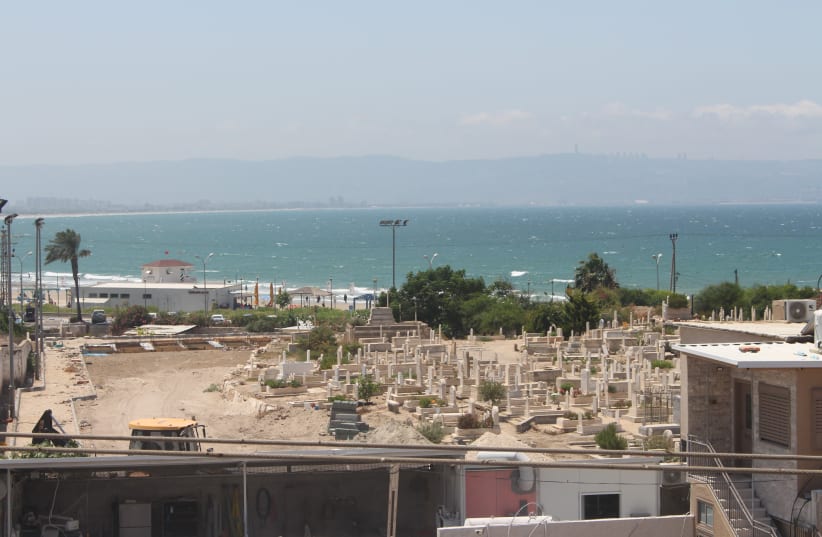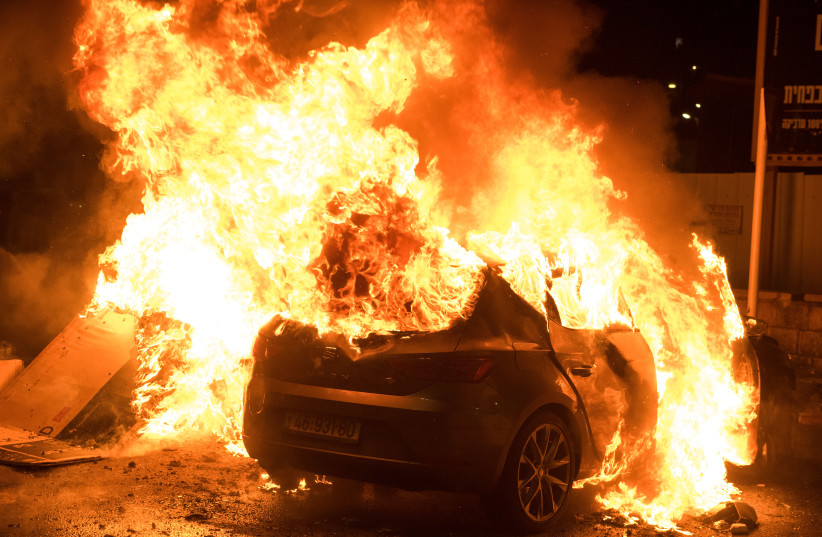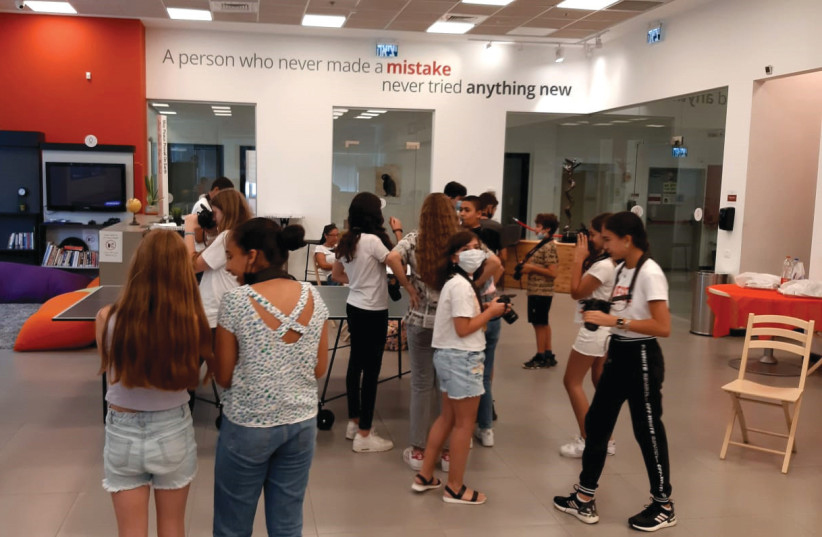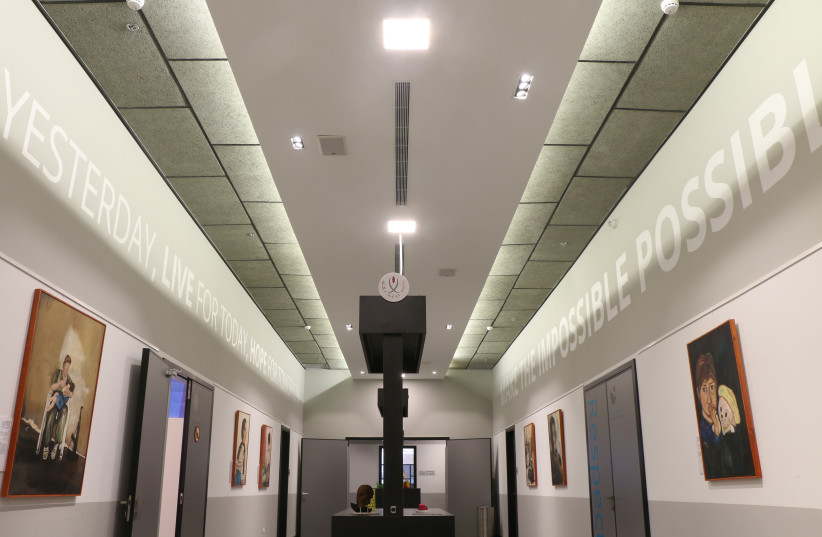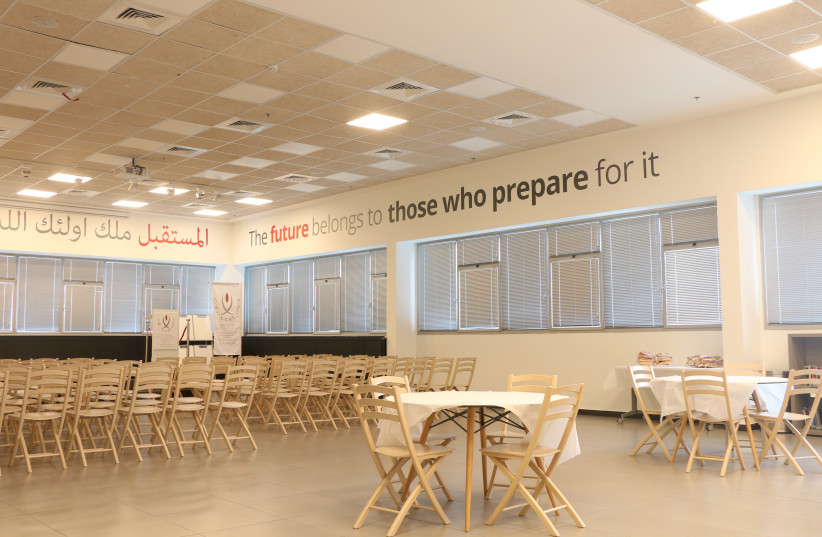‘Disconnecting from Acre will only make things worse. It will hurt the wrong people and will let the bad people grow even bigger,” says Naim Obeid, a 50-year-old sound engineer born and raised in the city, and CEO of the Akko Center for Arts & Technology (see box).
Picturesque Acre of rich multicultural history was the model of Israeli coexistence. That was until this past May, when the explosion of Arab violence showed a darker side of the city. The drastic change in Arab-Jewish relations inside of Israeli society to some was more disturbing than the rockets during the war in May. To many Israelis, Acre stopped being a tourist destination. I heard people’s voices saying: “I don’t want to go somewhere where we are unwanted;” “I don’t want to leave any shekels there any more.”
I went to Acre and I walked on deserted streets of the once-vibrant Old City. I saw the empty shuk and restaurants, without any clients. In the interview for the Magazine, Obeid, head of the nonprofit center offering training for Jews and Arabs, and free art and technology classes for youth, says he doesn’t lose hope for the peaceful coexistence and for tourists to come back. But he also doesn’t escape from the problems the city is facing.
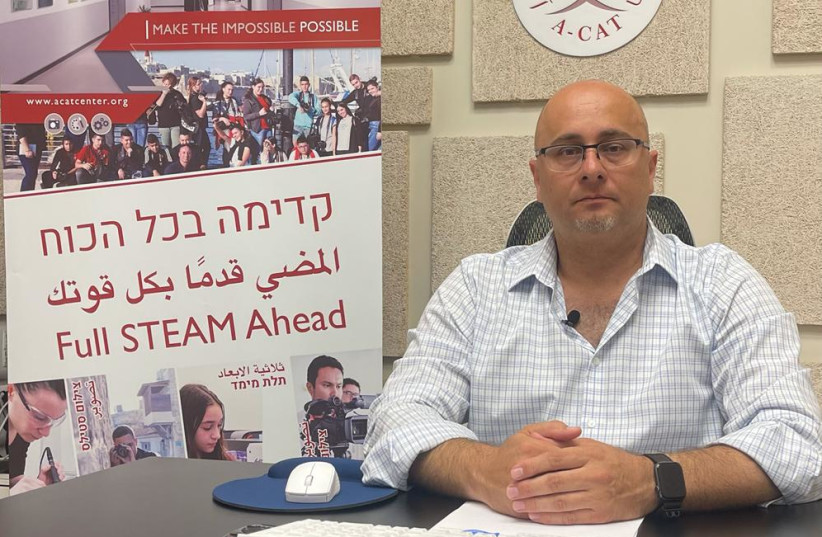
We are meeting in the A-CAT in Acre, and on the walls I see artworks of young participants in the center’s programs; there are smiling children running around the building or taking part in classes. The place has a modern design and feels like a safe environment. Arab and Jewish teenagers learn together: photography, 3D printing and short-film productions.
It’s hard to believe there were racial riots in Acre just recently. But it is also hard to erase from memory the image of a burning theater in Acre. As the head of A-CAT and a resident of Acre, what did you feel on that day? And what has actually happened?
First of all, people talk about Acre, together with Ramle, Lod and Jaffa. I can only talk about Acre. Also everything that happened here was not connected to what was happening in Jerusalem. It was just a trigger.
I live in the new city of Acre; I was watching it from my balcony, groups of teenagers from 13 to 18 years old, three groups went out to the city. They went to cause damage. I saw it with my own eyes. This is not something based on any media. I did not know what was happening in the Old City, it is a bit far from me. We knew the police were going after them.
What was your immediate reaction?
Disappointment. I was very sad.
Did you think about what you could do to stop them?
I was thinking. But obviously, if the police cannot do much, as an individual I couldn’t do anything about it. For a few days I was in shock. I was thinking that for the last five years I was working in the center for coexistence, and look what has just happened.
Did you feel a failure?
At first I was really shocked. Then I started to analyze the facts. In Acre there are over 48,000 residents. I did not see them on the streets. What we saw was 150, 180 youth that took to the streets. Not even 10% of the population. The extreme of each community. Should they affect the image of the entire Acre? Aren’t there any good Arabs who can serve our shared society?
But there were questions raised in Israeli society, asking why the rest of the residents of Acre did not stop the riots?
If the police could not stop it, individuals could?
I don’t know… I am asking you.
I don’t have a gun, and I am not willing to use one. All I can use is my words. But during those few days, I was not sure anyone was listening. By the way, most of those people were arrested.
As you said, you have been working for five years on teaching tolerance at A-CAT. So again, did you have a sense of failure?
At the beginning, yes. But after I started to think about the facts; 480 students go through our programs each year. None of them were on the streets that day (they were not on the list of those arrested). So it looks like we did something. At least we were successful with 480, multiply 4 years, this is almost 2000 kids. So maybe we spared the 2000 on the street. Or maybe only 200. The number doesn’t matter, and we cannot know the future. But at least I know that at least these 480 students were not on the streets that day. Because these kids have different tools. You can provide kids with knives, guns or with speech; you can provide them with the tools to stand up for their feelings, their issues.
How do you teach them this through art and technology?
We bring youth for three programs: 3D printing, photography, and cinematography – video editing and movies. The common factor is art and technology – the universal language. The main program has 12 sessions, and six sessions are for conflict mediation. So, they are taught how to talk about difficult issues, not through stones but speech, discussion.
Students are Arab and Jewish. Which language do they speak?
Both Hebrew and Arabic. We provide them with teachers in both languages.
So the classes are led in two languages simultaneously?
Mainly in Hebrew, but we provide them with the instructor, an Arab speaker, to help with any problems. What usually happens in the first sessions is that kids are very angry about the language barrier but with time they learn that most important is the message, not the language itself.
Are kids in Acre bilingual in general?
The Arab community speaks both Arabic and Hebrew, but sometimes they refuse to speak Hebrew. “I have to speak your language; you don’t care for my language,” they say. Jewish kids not only don’t speak Arabic, they make fun of Arab kids when they speak Hebrew, because of the accent.
That must be hard. Starting at what age do you teach kids at the A-CAT?
It used to be 13, now 10. We want to have the impact as early as possible.
The numbers of Jewish and Arab participants in each program are equal.
In practice, if someone wants to join the class, do you say “no” because of the number of Arab or Jewish students already in the class?
In the adult programs, learning professions, I am less concerned. The adults were already exposed to each other in life. But in the programs for children, yes, the number must be equal; for the youth this is a very sensitive issue. I am sending buses to Arab and Jewish schools at the same time.
The kids are growing up in parallel but separately, in the same city.
The kids are growing completely separately: Jewish schools, Jewish community center; Arab schools, Arab community center. They play football on separate pitches. And then when an accident happens, you are surprised that they are full of anger. The media will highlight the extreme and add the fuel to that anger. When a hundred people come together and have a good time we are not going to hear about it. But when someone is throwing stones, this is in the headlines.
The footage of the burning theater in Acre was very strong.
Of course, burning is always strong, and we must condemn any aggression. But as adults we must take responsibility and understand why it happened. Because, if not, we will meet in two years, talking about another accident. We all need to join forces: government offices, NGOs, funders and individuals, in order to prevent the next conflict.
Besides learning art, technology, and how to talk, what else do you think needs to be changed to give a sense of security?
Nowadays, many houses in the Old City of Acre are being sold to people from Jerusalem, and from out of the country. Everything is absolutely legal. But a poor kid in the Old City feels insecure over losing his home, which is already a small place. And he gets angry.
A lot of people, for example in Tel Aviv, are living in tiny apartments or rooms, paying a huge amount of money for rent, but they are not going to the streets to hit anyone with a stone because of it.
Yes, but we are talking about families, who are connected to the place, and they live in very small spaces, and yet are insecure about the future. They cannot dream about studying at the Technion. There is no leadership, so these kids prefer to be connected to crime. It gives them money and physical protection.
What you are saying now makes it sound like a mafia.
Yes. They are attracting more and more youth (I am talking about the Old City); the crime scene gives them some perspective, hope. The average age of a ‘soldier’ now is between 13 and 17.
I want to be precise; who do you mean by a ‘soldier’?
A part of the mafia. A person who delivers drugs. The more extreme you are going to be, you will get more ‘likes’ and it will be your ‘certificate’ in your professional life – of crime. So we [through education of art and technology] are competing with this. And this is a fact, crime is growing in the Old City, the police know about it.
Are kids from the Old City of Acre in your center?
Yes, I am trying to get to them.
With all of what you are saying now, my reason for coming to Acre after the riots of May, 2021, and learning if it is safe to come back here as a tourist, has an even bigger question mark. The picture you are painting is very depressing.
Still, I want to say, it is safe to come here. A few days after the riots, I was walking in the Old City in a hat and sunglasses, and people in the Old City took me for a tourist and they were talking to me in English and in Hebrew: “Welcome to Acre.” The poor people want to make a living from the market. They hardly make a living and they had no intention to make it [riots] happen. There will be more people to protect them [tourists] here, in case they will need any protection, but in general people can feel safe here. People of Acre are good people, good hosts. Disconnecting from Acre will only make things worse. It will hurt the wrong people and will let the bad people grow even bigger.
Why did you get involved in A-CAT? You had a career.
I am a sound engineer; I have my own business, my own sound studio. I was doing very well. But I felt I want to give back to my community, Arab and Jewish community. And when there was noise about Acre after the Yom Kippur outbreak of riots [2008], I realized we have to do something. I got involved in the NGO Keshet. We wanted to show that not everyone here is extreme. I think that, as individuals, we must take responsibility for what is going on in our local communities. The government, doesn’t matter which government, has a lot on its plate. Being active already at Keshet, I heard about the institute in the United States dealing with issues of African Americans and white people, to connect them together. And we took this model for Arab and Jewish society.
[“A-CAT was founded by the Northern Israel Center for Arts and Technology non-profit organization (NICAT), an extension of the USA based Manchester Bidwell Corporation (MBC). The center in Akko was established at the initiative of its chairman Mr. Mark Frank. It is the tenth center of its kind, and the first time the model has been implemented outside the USA.” Quote from: www.acatcenter.org.]
What were Arab-Jewish relations like in Acre when you were growing up?
I am Christian. I grew up in the new city of Acre, I was living a great life in a shared society. As a child, every Sukkot I was invited to my Jewish friends to a sukkah, and on Christmas they were coming to see the tree in my home.
Did Muslim kids also go to Jewish homes for Sukkot and invite Jewish friends home?
I don’t know. I can only speak for myself. I think I was one of a few, maybe the first Arab friend in the Jewish society.
Christians are a minority among Arabs. Is it hard to be Christian here?
No, we are survivors [laughs]. I had a happy childhood. But somehow, with time, things got worse over here.
Why?
Our dynamic life, political life in Israel, the lack of leadership, and something went wrong.
How do you define (if you don’t mind sharing) yourself: as an Israeli Arab, Arab living in Israel or a Palestinian?
Israeli Arab. And this is a fact, I am Israeli and I am Arab. I feel very connected to Israel, because I am responsible now for this center. I often think that the reasons for anger are that people are not connected, not responsible for anything as individuals. People need to feel they are connected, and for this they need to feel considered.
The first thing I saw at your A-CAT office was the window view over the beautiful Mediterranean Sea, and between your office and the sea, the three cemeteries.
It is actually our life: we start somewhere and end. The cemeteries here are Muslim, Jewish and Christian, we all rest in peace, next to each other. This is the most beautiful view you can see. Some visitors of the center will focus on the sea, some will stop on the cemeteries. I want to focus on both.
I want to see hope. We can never lose hope.
